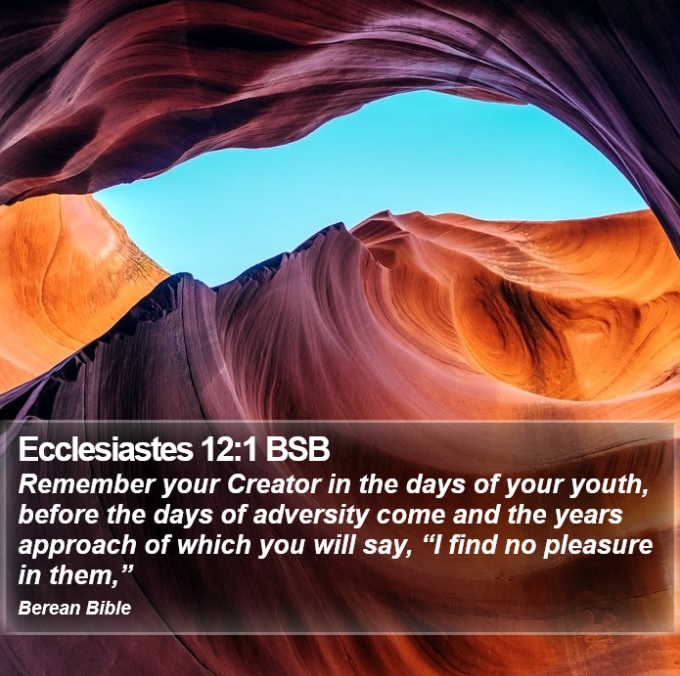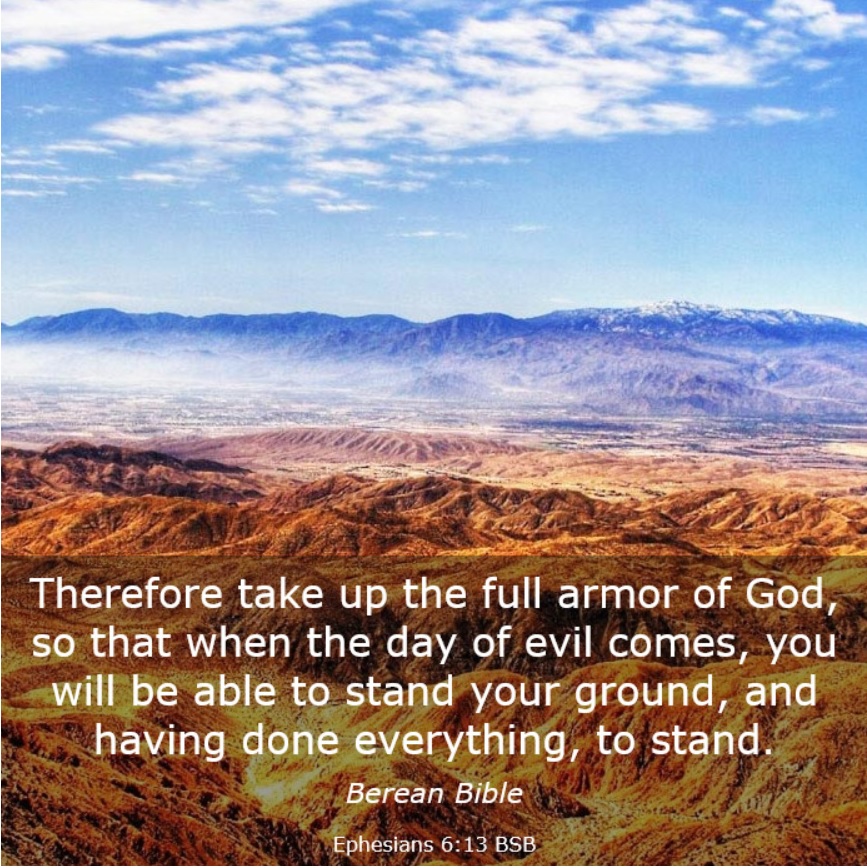“Go therefore and make disciples of all the nations…teaching them to observe all that I commanded you; and lo, I am with you always, even to the end of the age” (Matthew 28:19-20, NASB).
——————–
Contents:
1) It is Enough (Kyle Pope)
——————–

-1-
It is Enough
Kyle Pope
When life gets hard it’s not uncommon for us to come to a point in life that we throw up our hands, stop what we’re doing, and say “That’s it, I quit!” It may be at a job we’ve worked for years when we feel unappreciated or mistreated. It may be in a relationship when we feel we’re the only one trying to make it work. Perhaps it’s some task we’ve begun only to feel as if it’s just too hard, too demanding, or unrewarding.
Unfortunately, this sense of desperation is not limited to earthly things—people often respond to spiritual commitments the same way. We tried to teach someone the gospel, but it was unsuccessful. We used to teach Bible classes, but now “we’ve done our part!” That temptation we fight wins far too often. Our marriage just isn’t what we thought it would be. We tried to help some church problem, only to have things “blow-up in our face.” These challenges can make once faithful Christians stop working, stop trying, stop caring, and even abandon faith altogether.
Elijah’s Discouragement
Fortunately, the Bible offers us an example of a champion of faith who faced his own spiritual crisis that can teach us lessons about how to overcome our own obstacles to service to the Lord. Elijah was God’s faithful prophet to the wicked northern kingdom of Israel. Through Elijah God caused a drought in Israel that lasted three and a half years to punish its wickedness (1 Kings 17:1; Jas. 5:17). During this time God fed him miraculously with ravens (1 Kings 17:3-6) and then through a Sidonian widow in Zarephath (1 Kings 17:8-16). Through Elijah God demonstrated His power by consuming Elijah’s altar with its sacrifice by fire from heaven in the contest with the prophets of Baal, leading to the execution of 450 prophets of Baal (1 Kings 18:17-40).
After this victory, however, Elijah faced a spiritual setback. When the wicked queen Jezebel learned about his execution of her prophets, she swore to take Elijah’s life in return (1 Kings 19:1-2). Although God had preserved Elijah through all of this, he became discouraged and afraid. Elijah ran away to Beersheba, far to the south in the territory of Judah (1 Kings 19:3). He then went a day’s journey into the wilderness, lay down under a broom tree and cried out, “It is enough! Now, Lord, take my life, for I am no better than my fathers!” (1 Kings 19:4). After God once again fed him miraculously, he went all the way to Mount Horeb (1 Kings 19:5-8), where twice he cried to God “I have been very zealous for the Lord God of hosts; for the children of Israel have forsaken Your covenant, torn down Your altars, and killed Your prophets with the sword. I alone am left; and they seek to take my life” (1 Kings 19:10, 14). How could this pillar of faith come to feel so discouraged? What can this teach us when we feel “It is enough!”?
God’s Encouragement
We should first notice in God’s efforts to encourage him, how different the Lord’s response was from the way we often try to encourage others. God doesn’t excuse Elijah’s paralysis or empathize with him so much that Elijah felt justified in his discouragement. First, God questioned him twice, asking “What are you doing here, Elijah?” (1 Kings 19:9, 13). God knew exactly what Elijah was doing, but this forced Elijah to evaluate and articulate his own actions. Sometimes verbalizing our complaint forces us to consider its validity. Second, He commanded Elijah to observe a demonstration of His power (1 Kings 19:11a). God brought a wind that tore through the mountain, an earthquake, fire, and finally “a still small voice” (1 Kings 19:11b-12). A God of such power could not be threatened by a wicked woman like Jezebel! Finally, he revealed to Elijah some facts he could not have known otherwise (1 Kings 19:18) and gave him instructions he was to follow without delay (1 Kings 19:15-17). Let’s consider some lessons from this situation:
1. God gives us what we need. When Elijah first ran away from Jezebel he was ready to die (1 Kings 19:3-4). It is here that he declared, “It is enough! Now Lord take my life.” The first divine reaction to Elijah’s discouragement was to offer him food and rest. Miraculously, an angel appeared to him with a cake of bread and a jar of water (1 Kings 19:5-6a). The angel commanded Elijah to eat, then let him rest (1 Kings 19:6b). When he awoke the angel commanded him again to eat before he traveled further to Mount Horeb (1 Kings 19:7-8). God understood the limits of his body. He did not expect him to do anything beyond his ability. So it is with us. God does not feed us miraculously, but it is God who provides our “daily bread” (Matt. 6:11). He will not allow you “to be tempted beyond what you are able” (1 Cor. 10:13)—our challenge is to trust Him even when we feel “It is enough!”
2. We are never as alone as we think. While God didn’t coddle Elijah or enable his pouting attitude, He did offer a powerful bit of information that cut right to the heart of the cause of Elijah’s discouragement. Three times Elijah had declared, “I alone am left.” First, before his challenge of the prophets of Baal, he told the people “I alone am left a prophet of the Lord” (1 Kings 18:22). Twice, after he ran away from Jezebel, he said again “I alone am left” (1 Kings 19:10, 14). These last two times were different than the first. He began by saying, “the children of Israel have forsaken Your covenant” and concluded by saying “I alone am left.” He wasn’t just the last prophet—he seems to feel as if he’s the last faithful Israelite! The northern kingdom of Israel throughout its history was given to idolatry. Although God sent prophets to call them back to Him, they persisted in rebellion. It probably looked like no one else was faithful. The Lord tells Elijah, however, there were 7000 in Israel “whose knees have not bowed to Baal” and who had a “mouth that has not kissed him” (1 Kings 19:18). We can’t know people’s hearts. When we feel alone, as Christians we can be assured “the same sufferings are experienced by your brotherhood in the world” (1 Pet. 5:9).
3. There is work that needs to be done. After God questioned Elijah a second time, He gave him some commands. First, he was to go to Syria—enemy territory and anoint a new king named Hazael (1 Kings 19:15). Next, he was to return to Israel and anoint a man named Jehu, who would replace the wicked king Ahab (1 Kings 19:16a). These men would become instruments through which God would punish the wicked house of Ahab and his wife Jezebel (1 Kings 19:17). Was Elijah the man for this job—after all, he was discouraged and afraid? We tend to think we should wait until we feel better to start working again. God shows (through His commands to Elijah) the best way to feel better is to get back to work! In Christ there is too much to do—we have no time to stop working. The fields are “already white for harvest” (John 4:35).
4. We must prepare others to take our place. A third command God gives to Elijah is to find “Elisha the son of Shaphat” whom He commands Elijah to “anoint as prophet in your place” (1 Kings 19:16b). After Elijah was taken up into heaven it would be said of Elisha, “The spirit of Elijah rests on Elisha” (2 Kings 2:15)—meaning that Elisha would share the same zeal and courageous spirit that had belonged to Elijah. Scripture actually records more of Elisha’s faithful deeds than it does of Elijah! Centuries later John the Baptist would be one who would come “in the spirit and power of Elijah” (Luke 1:17). He too would have Elijah’s courage and zeal rebuking the wickedness of Herod and preparing the way for Jesus. If Elijah had given up how would these men have followed in his steps? Each of us has the responsibility to serve our own generation (cf. Acts 13:36), but we must also offer the teaching, example, and encouragement needed to prepare those who will follow after us. Paul commanded Timothy, “the things that you have heard from me among many witnesses, commit these to faithful men who will be able to teach others also” (2 Tim. 2:2). All of us face times we may be tempted to say, “It is enough!” but there are those looking to us to prepare them to stand one day in our place and take up the battle. Don’t let them down—keep up the fight!
— Via Focus Online, June 30, 2020
——————–
The Steps That Lead to Eternal Salvation
1) Hear the gospel — for that is how faith comes (Rom. 10:17; John 20:30-31).
2) Believe in the deity of Jesus Christ, the Son of God (John 8:24; John 3:18).
3) Repent of sins. For every accountable person has sinned (Romans 3:23; Romans 3:10), which causes one to be spiritually dead (Ephesians 2:1) and separated from God (Isaiah 59:1-2; Romans 6:23). Therefore, repentance of sin is necessary (Luke 13:5; Acts 17:30). For whether the sin seems great or small, there will still be the same penalty for either (Matt. 12:36-37; 2 Cor. 5:10) — and even for a lie (Rev. 21:8).
4) Confess faith in Christ (Rom. 10:9-10; Acts 8:36-38).
5) Be baptized in water for the remission of sins (Mark 16:16; Acts 2:38; 22:16; 1 Pet. 3:21). This is the final step that puts one into Christ (Gal. 3:26-27). For from that baptism, one is then raised as a new creature (2 Cor. 5:17), having all sins forgiven and beginning a new life as a Christian (Rom. 6:3-4). For the one being baptized does so “through faith in the working of God” (Col. 2:12). In other words, believing that God will keep His word and forgive after one submits to these necessary steps. And now as a Christian, we then need to…
6) Continue in the faith by living for the Lord; for, if not, salvation can be lost (Matt. 24:13; Heb. 10:36-39; Rev. 2:10; 2 Pet. 2:20-22).
——————–
Tebeau Street
CHURCH OF CHRIST
1402 Tebeau Street, Waycross, GA 31501
Sunday: 9 a.m. Bible Classes and 10 a.m. Worship Service
Wednesday (all but the first): 7 p.m. Bible Classes
First Wednesday of the month: 7 p.m. Congregational Song Service (about 45 minutes of singing, followed by a short talk)
evangelist/editor: Tom Edwards (912) 281-9917
Tom@ThomasTEdwards.com
https://thomastedwards.com/go/all.htm (This is a link to the older version of the Gospel Observer website, but with bulletins going back to March 4, 1990.)





